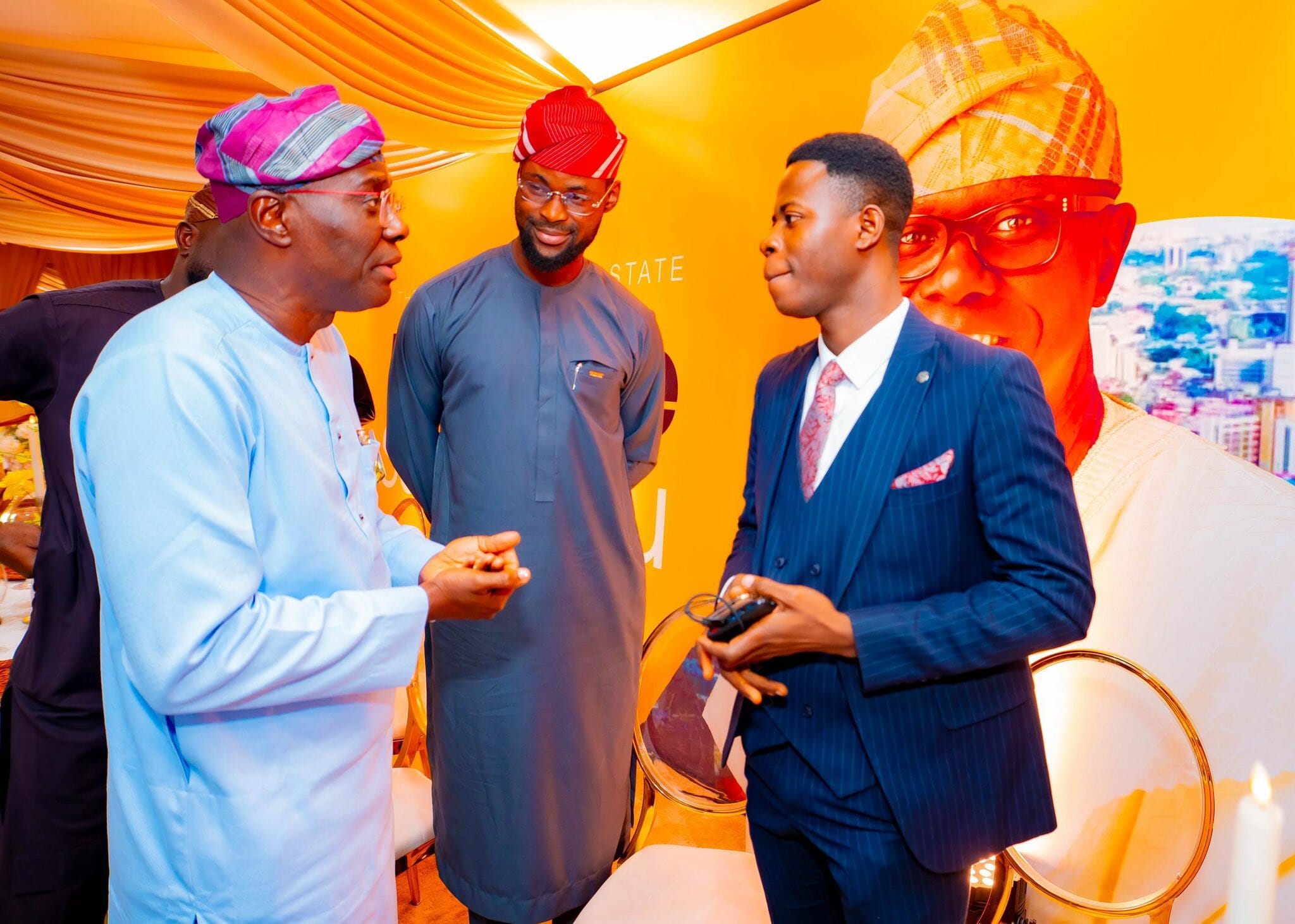On September 12, 2025, Lagos State Governor Babajide Sanwo-Olu unblocked prominent human rights lawyer Festus Ogun on X, marking a significant resolution in a high-profile dispute that has sparked widespread discussion about digital rights and freedom of expression in Nigeria. The unblocking followed a private meeting between the governor and Ogun at Lagos House, Marina, and came on the heels of a lawsuit filed by Festus Ogun against Sanwo-Olu in 2025. The legal action accused the governor of violating Ogun’s constitutional rights by blocking him on X since 2021, a move Ogun claimed restricted his access to public information and stifled his ability to engage in civic discourse.
Festus Ogun, a vocal human rights lawyer and activist, has been a consistent critic of government policies in Nigeria, particularly those of the Lagos State government under Sanwo-Olu’s leadership. His outspoken commentary, especially regarding the handling of the 2020 #EndSARS protests, is believed to have prompted Sanwo-Olu to block him on X in 2021. The #EndSARS movement, which called for an end to police brutality in Nigeria, was a pivotal moment in the country’s socio-political landscape, and Ogun’s critiques often targeted the state’s response to the protests, including allegations of excessive force and mismanagement.
Being blocked by the governor meant Ogun could no longer view or interact with Sanwo-Olu’s official X account, which serves as a key platform for disseminating government policies, announcements, and updates. Festus argued that this action violated his fundamental rights to freedom of expression and access to information, as guaranteed under Nigeria’s 1999 Constitution. In response, he filed a lawsuit in 2025, seeking to compel the governor to unblock him and to set a precedent for public officials’ accountability on social media platforms.
The Meeting and Resolution
The private meeting on September 12, 2025, was a turning point in the saga. Held at Lagos House, the discussion allowed both parties to address the issue directly. According to sources close to the meeting, Sanwo-Olu explained that the decision to block Ogun was not intended to silence him but was a reaction to the tone and persistence of Ogun’s criticisms on X. The governor reportedly expressed a willingness to move past the dispute and foster open communication with all citizens, including vocal critics like Ogun.
Ogun, for his part, maintained his stance as a defender of free speech and accountability. In a post on X following the meeting, he wrote, “I’m pleased to announce that Governor Sanwo-Olu has unblocked me on X after our meeting. While I appreciate the gesture, my resolve to hold power accountable remains unshaken. Aluta continua!” The phrase, meaning “the struggle continues” in Latin, underscored Ogun’s commitment to his activism, even as he acknowledged the resolution.
Sanwo-Olu’s decision to unblock Ogun was met with immediate reactions on X, where users praised the lawyer’s tenacity and debated the broader implications of the case. Many saw the outcome as a victory for digital rights, while others questioned whether it would lead to meaningful changes in how public officials engage with critics online.
Implications for Digital Rights in Nigeria
The Sanwo-Olu-Ogun saga highlights a growing tension in Nigeria’s digital landscape: the use of social media by public officials to control narratives and silence dissent. Platforms like X have become critical spaces for civic engagement, where citizens interact with government officials, access policy updates, and voice their opinions. However, the practice of blocking critics, as seen in Ogun’s case, raises questions about the balance between a public official’s personal discretion and their responsibility to ensure open access to information.
Ogun’s lawsuit drew parallels to international cases, such as Knight First Amendment Institute v. Trump in the United States, where a federal court ruled in 2018 that former President Donald Trump’s blocking of critics on Twitter (now X) violated the First Amendment. While Nigeria’s legal framework differs, Ogun’s case has sparked calls for clearer guidelines on how public officials use social media. Legal experts argue that blocking citizens on platforms like X could constitute a form of censorship, particularly when those platforms serve as primary channels for government communication.
The resolution also underscores the power of legal activism in addressing digital rights violations. By taking Sanwo-Olu to court, Ogun not only secured his own access to the governor’s X account but also brought national attention to the issue. Activists and civil society groups have hailed the outcome as a step toward ensuring that public officials cannot arbitrarily restrict citizens’ access to information on social media.
Public Reaction and Broader Context
The unblocking of Festus Ogun has generated significant buzz on X, with hashtags like #SanwoUnblocksOgun and #DigitalRightsNG trending in Nigeria. Supporters of Ogun have praised his courage, with one user posting, “Festus Ogun is a hero for standing up to power. This is what accountability looks like!” Others, however, have criticized the governor’s initial decision to block Ogun, arguing that it reflects a broader trend of intolerance among Nigerian leaders.
The case also comes at a time when Nigeria is grappling with increasing restrictions on digital spaces. In 2021, the Nigerian government temporarily banned Twitter (now X) after the platform removed a post by then-President Muhammadu Buhari. The ban, which lasted seven months, was widely criticized as an attempt to suppress free speech. Against this backdrop, Ogun’s victory is seen as a small but significant pushback against efforts to curtail online expression.
In conclusion, the resolution between Sanwo-Olu and Ogun is more than a personal victory it’s a milestone in the fight for digital rights and free expression in Nigeria. As social media continues to shape public discourse, cases like this will likely set the tone for how governments and citizens navigate the complexities of online engagement. For now, Festus Ogun’s unblocking is a testament to the power of persistence and the importance of holding those in power accountable, both offline and online.
Read More
- New Tax ID in Nigeria: What It Is, Its Impact, and How to Get One
- Aliko Dangote and Ethiopia Seal $2.5 Billion Fertilizer Plant Deal to Boost Food Security
- Why Dangote’s $3 Billion Fertilizer Investment May Not Benefit Nigeria as Much as Africa
- FG Commences ATM Card Distribution for N75,000 Cash Transfer, Benefiting Millions of Nigerians

